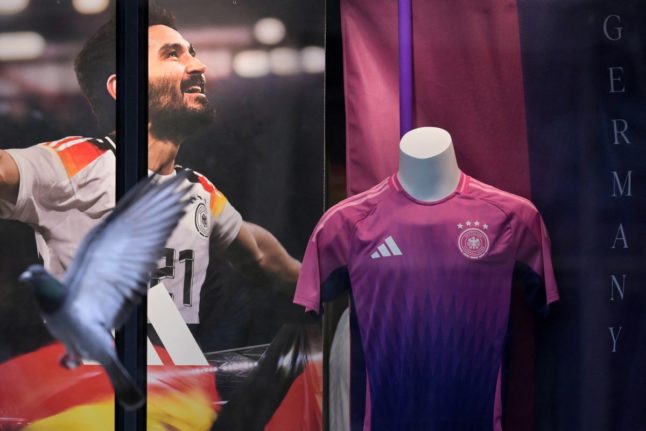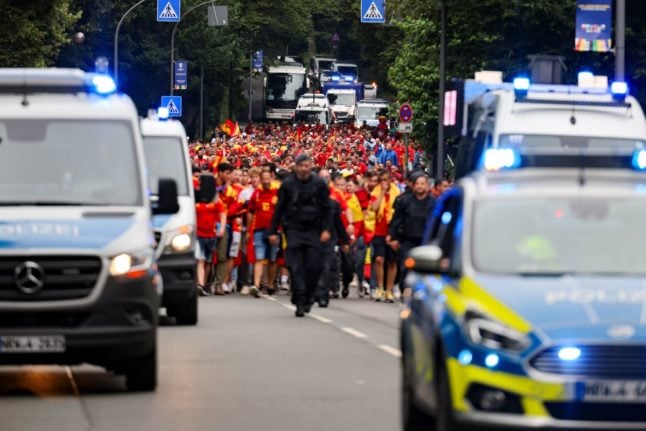The gaudy number has sold “almost as much” as Germany’s traditional white home strip, Adidas spokesman Stefan Pursche told AFP.
Under normal circumstances, four out of every five shirts sold would be the home kit, but the pink change has had “exceptional” success, Pursche said.
The huge demand has made it Germany’s “best-selling away kit in history”, ahead of previous iconic green or black jerseys.
Despite initial scepticism over the away shirt’s daring palette — and some homophobic or sexist commentary about the choice of colours — the kit has been embraced by fans.
“I think it is courageous to choose such a colour,” fan Alex Mueller, 39, told AFP outside Germany’s game against Switzerland on Sunday, sporting a pink shirt received as a gift.
The shirt was out-of-stock on Adidas’s website on Monday morning, with new supplies to be put online at 08:30 GMT (10:30 in Germany) on Tuesday.
Most of the Adidas’s stores in Germany were also running very low, with only a few very small sizes or children’s models still available.
The popularity of the shirt has made it a hot commodity. Leo, 17, told AFP by Adidas’s Frankfurt shop on Friday that he would take the four pink shirts he had put his hands on to “resell on eBay” at a markup.
“They are the most difficult to get, so it’s there that I can make the biggest gains,” he said.
Sales of the pink kit could continue to rise if Germany progresses deeper into the tournament.
Julian Nagelsmann’s side sealed a first-placed finish in the group stage on Sunday with a 1-1 draw against Switzerland.
For the 2014 World Cup, Adidas sold some three million Germany shirts, with around half-a-million being sold in the days following Germany’s final victory over Argentina.
The pink strip however figures to be one of the last kits Adidas makes for their home team after decades during which the sportswear company’s three stripes were a fixture on German kits.
US rival Nike has secured the contract to outfit the German national team from 2027.
READ ALSO: ‘Lack of patriotism’ – German football team to cut ties with Adidas after 70 years



 Please whitelist us to continue reading.
Please whitelist us to continue reading.
Member comments